Results
-
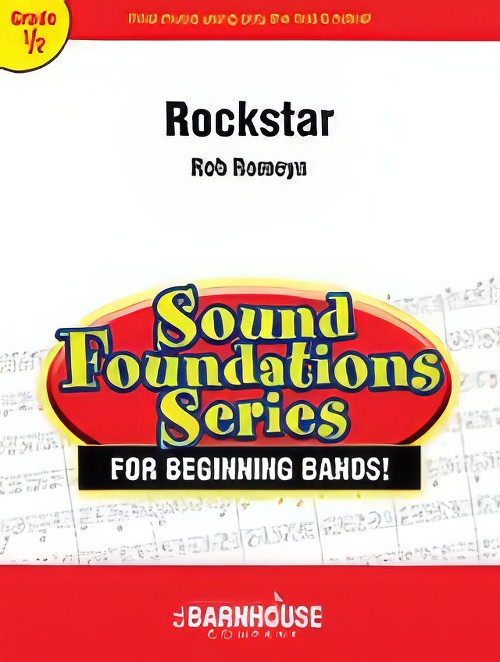 £45.00
£45.00Rockstar (Concert Band - Score and Parts) - Romeyn, Rob
Your beginning band will really shine with this fun and engaging tune! "Rockstar" has it all: a fun drum groove, catchy melody, and a harmonic accompaniment that provides the drive to keep it all together - all this while using only the first six notes learned in band instruction. You'll want to save this one for the end of rehearsal, as students will want to play it over and over. Perfect for school assemblies and pep rallies. Rock on!! Duration: 1.50
Estimated dispatch 7-14 working days
-
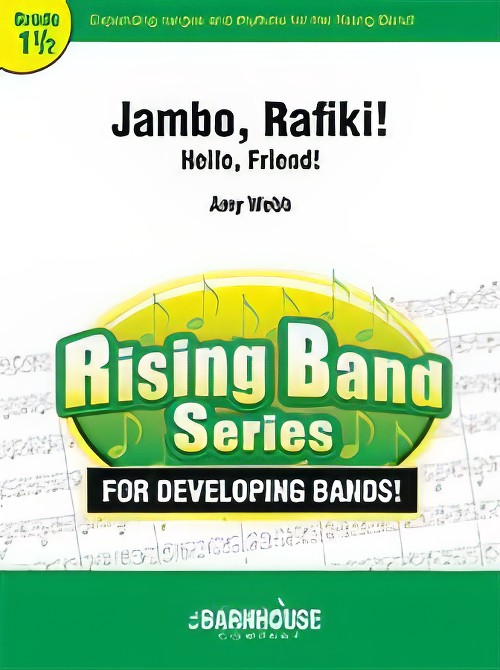 £49.00
£49.00Jambo, Rafiki! (Hello, Friend!) (Concert Band - Score and Parts) - Webb, Amy
"Jambo, Rafiki!" (translated: "Hello, Friend!") celebrates the joyous and impetuous spirit of the people of Kenya. With engaging rhythms and a catchy melody, your students are sure to want to play this piece over and over. Featuring engaging percussion scoring, and accessible to groups with percussion sections of any size/ Concepts to practice and cement in this cultural gem include dotted 8th and 16th rhythms and simple syncopation. Terrific!!! (Kushangaza)!!! Duration: 2.30
Estimated dispatch 7-14 working days
-
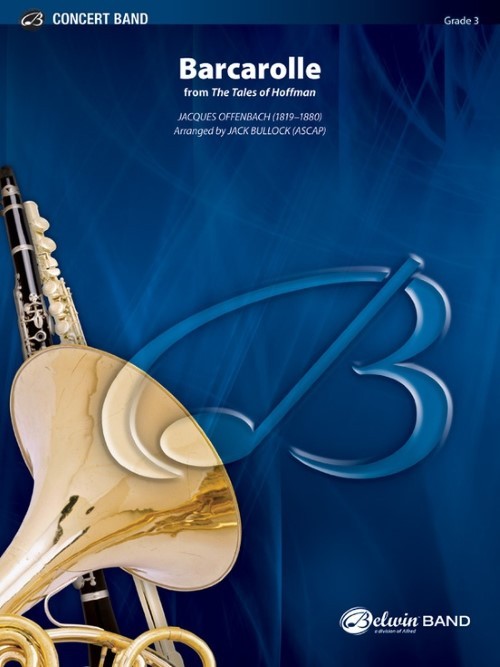 £66.95
£66.95Barcarolle (from Tales from Hoffman) (Concert Band - Score and Parts) - Offenbach, Jacques - Bullock, Jack
Barcarolle, one of the most famous operetta melodies, is presented here for concert band. Its "rolling" melody and simple harmonic structure have made it a favourite the world over. Written by one of the originators of the operetta musical form, Jacques Offenbach, it has endured for over 150 years. A historic work in a contemporary setting... a most musical gem!Duration: 2.45
Estimated dispatch 7-14 working days
-
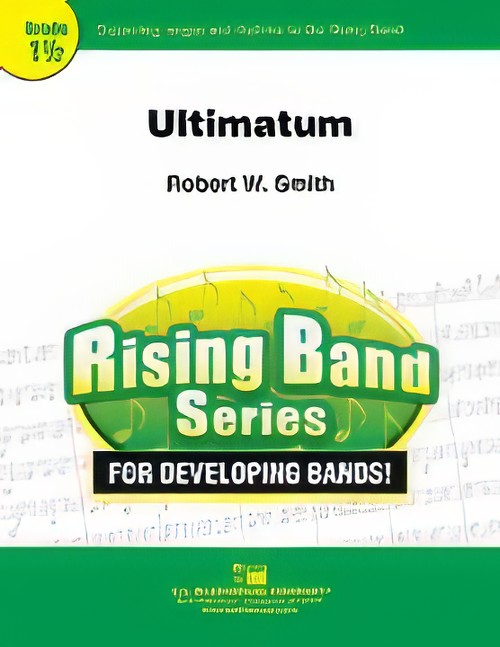 £46.00
£46.00Ultimatum (Concert Band - Score and Parts) - Smith, Robert W.
Ultimatum, Robert W. Smith's exhilarating contribution to the young band repertoire, focuses the energy and intensity of our developing musicians into one powerful musical statement. Featuring a melody that students will be practicing over and over on their own, the composer draws upon multiple musical styles to create this unique musical work. Using both traditional and contemporary compositional techniques, Ultimatum is sure to be the favourite of performer and audience alike.Duration: 1.45
Estimated dispatch 7-14 working days
-
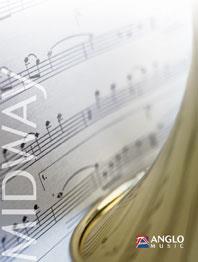 £106.99
£106.99MacArthur Park (Concert Band - Score and Parts) - Webb, Jimmy - Sparke, Philip
Over a period of four decades Jimmy Webb (b. 1946) has written hits for a number of singers including Glen Campbell, Art Garfunkel, Frank Sinatra, Willie Nelson, Johnny Cash and Linda Ronstadt. His songs are often epic in character and include By the Time I Get to Phoenix; Up, Up and Away; Didn't We; Wichita Lineman and Galveston. MacArthur Park (1968) was unlike anything that had gone before it. Running at over 7 minutes, it is 2 or 3 times the length of most pop songs and has an extended orchestral interlude. Richard Harris' seminal recording topped the music charts in Europe, while peaking at number two on the U.S. charts. Philip Sparke has made this excellent arrangement for concert band, which is sure to become a regular feature on your concert program.Duration: 7:30
Estimated dispatch 7-14 working days
-
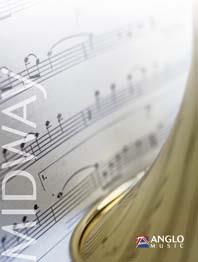 £87.99
£87.99Jerusalem (Concert Band - Score and Parts) - Parry, Hubert C. - Sparke, Philip
Everyone will instantly recognise this great patriotic hymn that is often thought of as the second English national anthem. This concert band arrangement by Philip Sparke is sure to be used over and over again at your band's performances. Your audience will not be able to help themselves from joining in with this rousing song every time you use it as the final item in any concert.Duration: 2:00
Estimated dispatch 7-14 working days
-
 £43.56
£43.56Barrage (Concert Band - Score and Parts)
Beginning band students are known for their boundless energy. "Barrage" by Robert W. Smith captures that energy in a piece your students will want to rehearse and perform over and over again. Each instrument in the wind section has the opportunity to play the melody. Along the way, the teaching of dynamic shaping, contrast and unified ensemble interpretation are the educational goals. Exceptional teaching in an exceptional musical setting!
Estimated dispatch 7-14 working days
-
 £43.56
£43.56Chillaxin' (Concert Band - Score and Parts)
Let your young musicians kick back a bit and let the trumpet section lay down this cool groove for developing bands. Set in a minor key, "Chillaxin' " provides the spotlight your young trumpeters crave, all while providing interesting accompanying roles for the rest of the band. Your students will ask to play this over and over again!
Estimated dispatch 7-14 working days
-
 £43.56
£43.56Creature Feature (Concert Band - Score and Parts)
An absolute beginning band showstopper, "Creature Feature" will be the hit of any concert program! Each section of the band has the opportunity to play memorable melodic themes and be inspired to create dynamic contrast. This fun, spooky and catchy novelty tune is designed to be performed in the second semester of study. You will want to save this for the end of rehearsal - your students will want to play this one over and over!! Scary sounds and frightful fun!
Estimated dispatch 7-14 working days
-
 £47.52
£47.52Crunch Time!
When it's hip to be cool, this is the piece that both you and all your students will want to play over and over again. Crunch Time is the perfect selection for an concert, school assembly, or that occasional athletic pep rally. Your percussionists will delight in the myriad of sounds required for this work and you can be assured that the scoring for brass and woodwinds is extremely solid from top to bottom. You might just want to consider saving this for the end of practice to insure that your young musicians will be exiting rehearsal with huge smiles on their faces.
Estimated dispatch 7-14 working days
